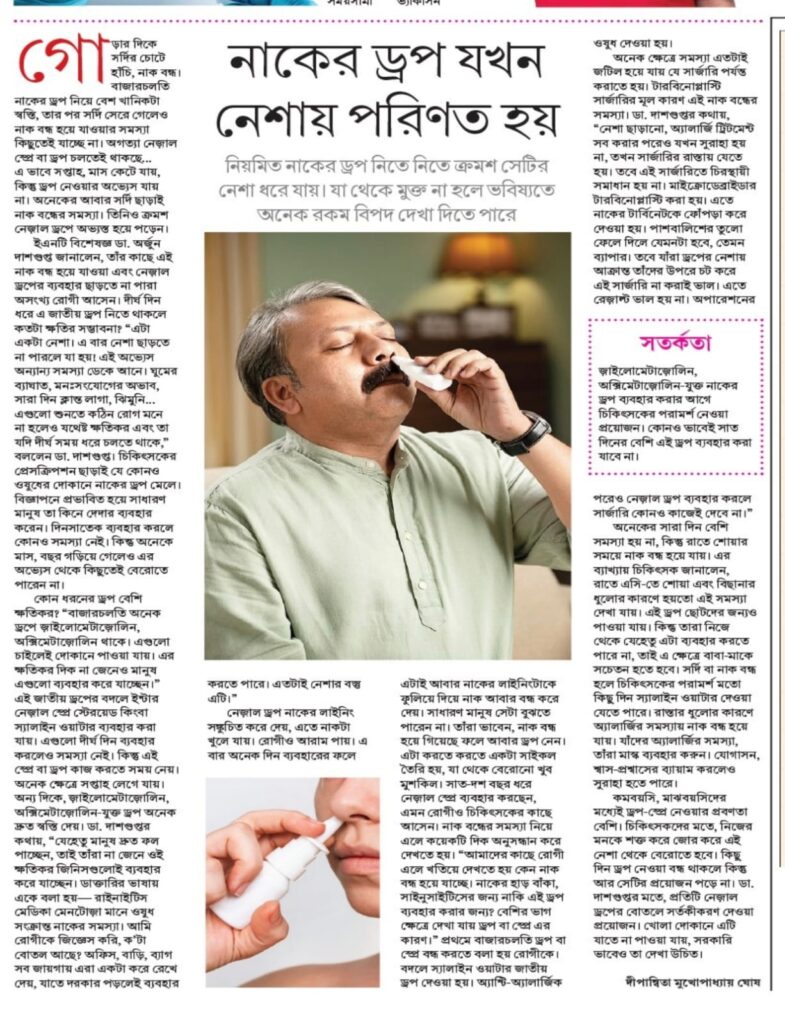When Nasal Drops Become an Addiction: What You Need to Know

Why People Get Addicted to Nasal Sprays
Introduction
Nasal sprays and drops provide instant relief from a blocked nose, especially during colds and allergies. But overuse of these sprays can lead to a lesser-known problem: nasal spray addiction. This blog will help you understand the dangers of nasal spray overuse and how to break free from this unhealthy habit.
When you use a nasal decongestant, it shrinks the swollen blood vessels inside the nose, providing immediate relief. But if you continue using it beyond a few days, your nose starts relying on it to stay open. Without the spray, your nose feels blocked again. This is known as Rhinitis Medicamentosa.
The Vicious Cycle:
Blocked nose → Use spray → Relief → Blockage returns → Use spray again.
Health Risks of Overusing Nasal Drops
Overuse of nasal sprays can lead to:
- Damage to the nasal lining
- Chronic swelling of nasal tissues
- Persistent nasal congestion
- Increased risk of infections
- Sleep disturbances and irritability
- In some cases, high blood pressure due to systemic absorption of the medicine
Common Medicines That Can Cause Addiction
Most over-the-counter nasal decongestants contain oxymetazoline or xylometazoline. These are safe for short-term use (3-5 days) but dangerous when used continuously for weeks or months.
Many people, without consulting a doctor, use these sprays for prolonged periods, causing more harm than good.
How to Break the Addiction
Step 1: Gradually Reduce Usage
Instead of quitting suddenly, slowly reduce how often you use the spray. This helps your body adjust.
Step 2: Switch to Saline Sprays
Saline sprays are gentle and help keep your nasal passages moist without harmful side effects.
Step 3: Treat the Root Cause
Nasal blockage could be due to allergies, sinusitis, nasal polyps, or a deviated septum. Get a proper diagnosis and treatment from an ENT specialist.
Step 4: Seek Medical Help
Doctors may prescribe nasal steroid sprays, antihistamines, or even recommend minor procedures to restore normal breathing.
A Word of Caution
If you have hypertension, heart disease, diabetes, or thyroid problems, be especially careful with nasal decongestants. Some sprays can worsen these conditions.
Final Thoughts
Nasal sprays provide quick relief, but when overused, they create bigger problems. If you feel trapped in a cycle of spray dependence, seek medical help. With the right treatment and care, you can breathe freely again.
